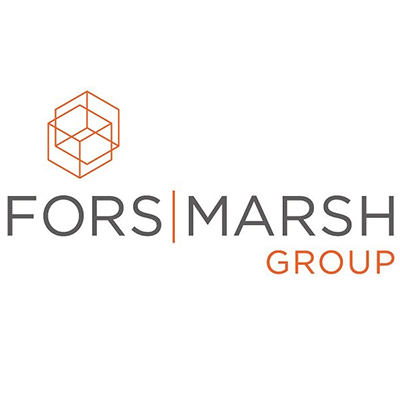ATD Blog
Leverage Learning Ecosystems to Build Readiness in the Workforce of the Future
Mon Oct 05 2020

Content
The capacity to train a workforce with up-to-date skills is becoming more difficult as pressure from technological innovation makes learning efforts quickly outdated and ineffective. As the future of work continues to place more stress on organizations, industries, and workforces, leaders need to evaluate and build their organizations’ learning offerings to include lasting capabilities that optimize workforce readiness.
The capacity to train a workforce with up-to-date skills is becoming more difficult as pressure from technological innovation makes learning efforts quickly outdated and ineffective. As the future of work continues to place more stress on organizations, industries, and workforces, leaders need to evaluate and build their organizations’ learning offerings to include lasting capabilities that optimize workforce readiness.
Content
Fors Marsh Group (FMG) identified two capabilities that determine workforce readiness: people and technology. Technology capabilities are a range of skills that aid in readiness for and comfort with adapting to rapid technological change that accompanies the future of work. People capabilities are innate and learned abilities that rely on human emotion, perception, and thinking and cannot be replicated by automation and AI. It’s imperative that employees build these capabilities across new roles in their organization and career.
Fors Marsh Group (FMG) identified two capabilities that determine workforce readiness: people and technology. Technology capabilities are a range of skills that aid in readiness for and comfort with adapting to rapid technological change that accompanies the future of work. People capabilities are innate and learned abilities that rely on human emotion, perception, and thinking and cannot be replicated by automation and AI. It’s imperative that employees build these capabilities across new roles in their organization and career.
Learning Ecosystems Enable Future-Ready Learning
Content
Learning ecosystems empower organizations to prepare for the future of work by visualizing and understanding what combination of learning solutions are necessary to be effective. They are characterized by various learning modes, methods, tools, and use modern scientific literature around learning to craft digestible content and produce lasting value. Learning ecosystems emphasize using various innovative technological tools that allow learning to take place when and where the learner has the capacity.
Learning ecosystems empower organizations to prepare for the future of work by visualizing and understanding what combination of learning solutions are necessary to be effective. They are characterized by various learning modes, methods, tools, and use modern scientific literature around learning to craft digestible content and produce lasting value. Learning ecosystems emphasize using various innovative technological tools that allow learning to take place when and where the learner has the capacity.
Content
Building an effective learning ecosystem means creating an interconnected strategy of learning that engages learning and development efforts throughout the organization. Although this can be daunting, organizations often have the necessary foundation but need a more organized strategy around what skills and capabilities should be prioritized. An effective and future-ready learning strategy includes readiness capabilities that are reinforced by formal, social, and experiential learning strategies.
Building an effective learning ecosystem means creating an interconnected strategy of learning that engages learning and development efforts throughout the organization. Although this can be daunting, organizations often have the necessary foundation but need a more organized strategy around what skills and capabilities should be prioritized. An effective and future-ready learning strategy includes readiness capabilities that are reinforced by formal, social, and experiential learning strategies.
Three Steps to Craft a Learning Strategy That Drives Workforce Readiness
Content
FMG leverages a three-step process to implement a learning ecosystem that drives the future of work readiness:
FMG leverages a three-step process to implement a learning ecosystem that drives the future of work readiness:
Content
1. Assess: It is important to assess the capabilities of a learning ecosystem and its learners. If a learning ecosystem has multiple different opportunities for interaction with material, but the learner has no background knowledge on the subject, the learning program will not be effective. Adult learners should be given context on the materials and how the information will be useful to them at work and in life prior to accessing the materials.
1. Assess: It is important to assess the capabilities of a learning ecosystem and its learners. If a learning ecosystem has multiple different opportunities for interaction with material, but the learner has no background knowledge on the subject, the learning program will not be effective. Adult learners should be given context on the materials and how the information will be useful to them at work and in life prior to accessing the materials.
Content
2. Plan : After considering the incentive to learn, organization-specific learning needs, available tools, and learning objectives, plan a solution that best fits situational needs. Adult learners need content and learning options tailored to their needs and environment. Organizations need learning programs that garner results and support the accomplishment of mission critical measures of success.
2. Plan: After considering the incentive to learn, organization-specific learning needs, available tools, and learning objectives, plan a solution that best fits situational needs. Adult learners need content and learning options tailored to their needs and environment. Organizations need learning programs that garner results and support the accomplishment of mission critical measures of success.
Content
3. Act: Act to implement a customized and optimized learning program. Based on need, people and technology capabilities that will be most useful for a workforce throughout their time as an employee are chosen.
3. Act: Act to implement a customized and optimized learning program. Based on need, people and technology capabilities that will be most useful for a workforce throughout their time as an employee are chosen.
Content
People capabilities like adaptability, curiosity, and resilience enable employees to change with shifting social and economic circumstances, learn and use evolving skills, and weather taxing or risky job demands. Technology capabilities like flexible learning, self-efficacy, and tolerance for ambiguity enable workforces to ask smart questions, be empowered to make difficult decisions, and feel comfortable with fast-changing technology.
People capabilities like adaptability, curiosity, and resilience enable employees to change with shifting social and economic circumstances, learn and use evolving skills, and weather taxing or risky job demands. Technology capabilities like flexible learning, self-efficacy, and tolerance for ambiguity enable workforces to ask smart questions, be empowered to make difficult decisions, and feel comfortable with fast-changing technology.

